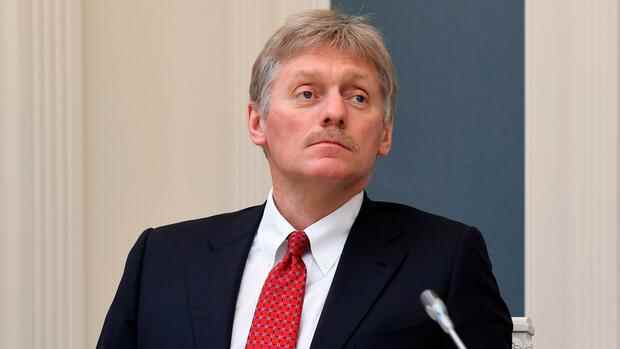Berlin Russia’s leaders justify switching Gazprom’s supply contracts to rubles, claiming Western sanctions are weakening the euro and dollar: The decision to convert payment for Russian gas from non-friendly countries into rubles was not made “to smack anyone in the face ‘ Putin’s spokesman Dmitry Peskov told state broadcaster Rossiya-1 on Sunday. Contrary to the fact that more investors have been buying dollars since Russia’s invasion of Ukraine, he claimed that the West’s “sanctions madness” against his country is “accelerating the process of eroding the world’s reserve currency.”
The freezing of the Central Bank of Russia’s reserves by the EU and the US, backed by Japan and the UK, is “an erosion of confidence in the dollar and euro, which have always been such a pillar of all international settlements,” Peskov said. Without backing this up with facts, the Kremlin spokesman, who like Putin is on Western sanctions lists, claimed that “more and more countries doubting the credibility of the dollar and the euro tend to develop and work out options for the mutual settlement of national currencies”. .
According to an ukase from Putin, foreign buyers have had to have two accounts – a foreign currency account and a ruble account – with Gazprombank, which also has a branch in Luxembourg, since April 1. These accounts are kept under the name Spezialkonton K. Gazprom customers then transfer their foreign currency payments to the appropriate account, after which the bank buys rubles for them on the Moscow Stock Exchange. These are credited to the buyer’s ruble account and transferred to an account of the supplier Gazprom in Russia.
Russia warns of sanctions against Gazprombank
The test for ruble payments will only come up “in the second half of April or even in May,” Peskov admitted. Only then would settlements be due for Russian deliveries by the Kremlin-controlled Gazprom group.
Top jobs of the day
Find the best jobs now and
be notified by email.
Putin’s decree sounds harsh, but in reality foreign gas customers do not have to buy rubles themselves, stressed Alexei Gromov from the Moscow Institute of Energy and Finance. For Russia, the “only risk” with this payment mechanism is that transfers to Gazprombank could be intercepted, which is not subject to sanctions. In this regard, Gromov warned that if payments to Gazprombank were intercepted or sanctions were imposed, Russian pipeline gas exports would be halted.
Putin’s economic advisor Maxim Oreshkin is to make this clear to the federal government and others on behalf of the Kremlin, the Moscow business daily “RBK” reported, citing Kremlin circles.
The goal of further stabilizing the ruble through additional ruble demand is unlikely to be achieved, said Moscow financial expert Andrei Barchota. He expects the exchange rate to fluctuate greatly in the future, but to settle at 90 to 95 rubles per dollar. Although that is significantly better than immediately after the sanctions were imposed, when the Russian national currency slipped to 140 rubles per greenback, it would still be above the pre-war level.
Kremlin boss Vladimir Putin has ordered, effective April 1, that Western countries must open accounts with Gazprombank in order to continue receiving Russian gas.
(Photo: dpa)
Since the beginning of April, natural gas has stopped flowing from Russia to Latvia, Lithuania and Estonia, according to Uldis Bariss, head of the Latvian gas network operator Conexus Baltic Grid (Conexus). Moscow’s decision to accept payments for gas from unfriendly countries only in rubles is a one Signal to the Baltic states to drastically reduce their supplies as they “can no longer be relied on”. Lithuania’s Energy Minister Dainius Kreivys has already announced that his country is the first Gazprom customer in the EU to stop buying natural gas from the Kremlin-controlled gas company. Lithuania now obtains all of its gas requirements from the LNG terminal in the port of Klaipeda. In Latvia, Bariss has already demanded that “from the point of view of the state’s energy security, the construction of a second LNG terminal must definitely be examined”.
Gazprom delivered 145 billion cubic meters of natural gas to the EU last year, about 40 percent of gas consumption there. In addition, there were ten billion cubic meters in the form of liquid gas from the Russian gas company Novatek. The obligation to pay in rubles expressly does not apply to LNG. A close Putin confidant is involved in Novatek.
More: Despite Putin’s threat, the gas is still flowing to Europe
